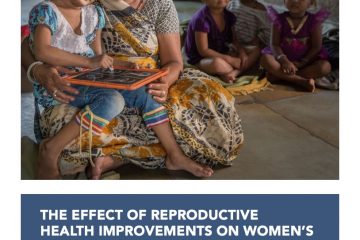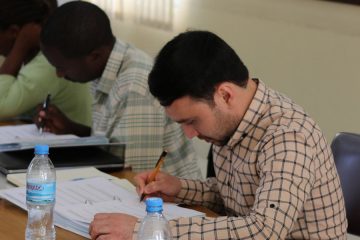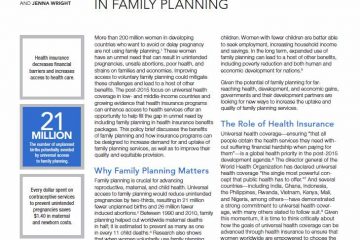
Population and Poverty (PopPov) Research Network Page
Enhancing research and policy communication in population, reproductive health, and economic development.
William and Flora Hewlett Foundation
Status: Completed
As part of the William and Flora Hewlett Foundation’s Population and Poverty (PopPov) Research Initiative to enhance research and policy communication in population, reproductive health, and economic development, the foundation has partnered with Population Reference Bureau (PRB) and other institutions in the United States, the United Kingdom, Norway, the Netherlands, France, and Africa to strengthen evidence on how population and reproductive health affect economic outcomes in low- and middle-income countries. Under this initiative, Hewlett partners have awarded research funding to more than 100 principal investigators and Ph.D. candidates.
To date, Network researchers have addressed research questions relevant to social, health, and economic issues in 70 countries. Their work, which includes over 250 publications, has shed light on pathways through which fertility, health, and population growth affect economic growth at the national level. Other work has provided insight on the relationships between reproductive health, fertility, education, women’s labor force participation, and economic growth.
Policy Relevance of PopPov Research
The PopPov body of research shows that in order for a country to build a strong and growing economy and end poverty among its families, leaders must invest in policies and programs that support expanded access to comprehensive reproductive health services alongside investments in education. These investments can yield a healthy and educated population and a productive economy.
The research findings provide insight and an evidence base that is particularly relevant to achieving the Sustainable Development Goals (SDGs). Specifically, findings show that investing in women’s health, education, and empowerment improves economic well-being for individuals and households, and contributes to economic growth. This body of evidence can inform policy solutions to global challenges including poverty, health, women’s empowerment, and sustainable economic growth.
Recent Resources From the PopPov Secretariat
- September 2017: Find out what rigorous research says about the effect of reproductive health on women’s economic empowerment.
- May 2017: Learn about policy relevant findings from PopPov research, Adolescents, Gender Equality, Nutrition, and Women’s Economic Empowerment.
- April 2017: Researchers currently and formerly supported under the PopPov Initiative are featured in 36 sessions and 10 poster sessions at PAA. Download the schedule for more details.
- April 2017: The Research Council of Norway’s ECONPOP program—Research on Economic Growth Poverty Reduction, Reproductive Health, and Population Dynamics—shared results and implications with policymakers in the Ministry of Foreign Affairs and the Agency for Development Cooperation, Norad, in Oslo, A Gender Perspective on Demography and Conflicts.
- May 2016: Stakeholder Listings serve to facilitate the dissemination of research results and recommendations to the appropriate stakeholders in government, nongovernmental organizations, and the private sector.
- April 2016: The PopPov Project Map is a visual representation of the countries where the PopPov network of researchers have studied social, health, and economic issues.
- March 2016: Communicating Research: Policymakers’ Perspective policy brief summarizes policymakers’ perspectives on barriers to evidence-informed policymaking and strategies for making research results more accessible for use in policymaking.
For other publications and resources from the Network, visit www.poppov.org.
For more information, contact Marlene Lee, senior program director, Academic Research and Relations, 202-483-1100.



